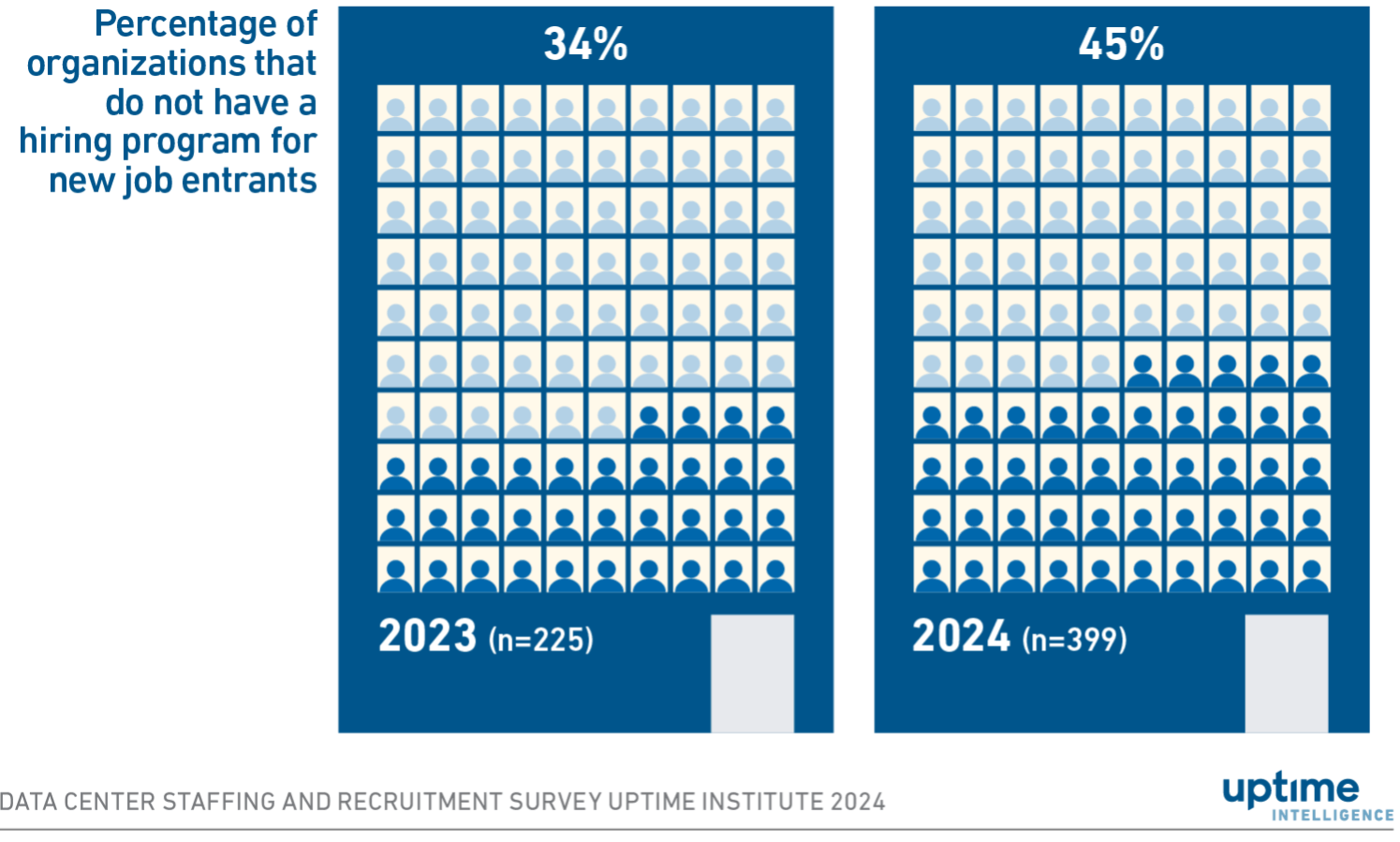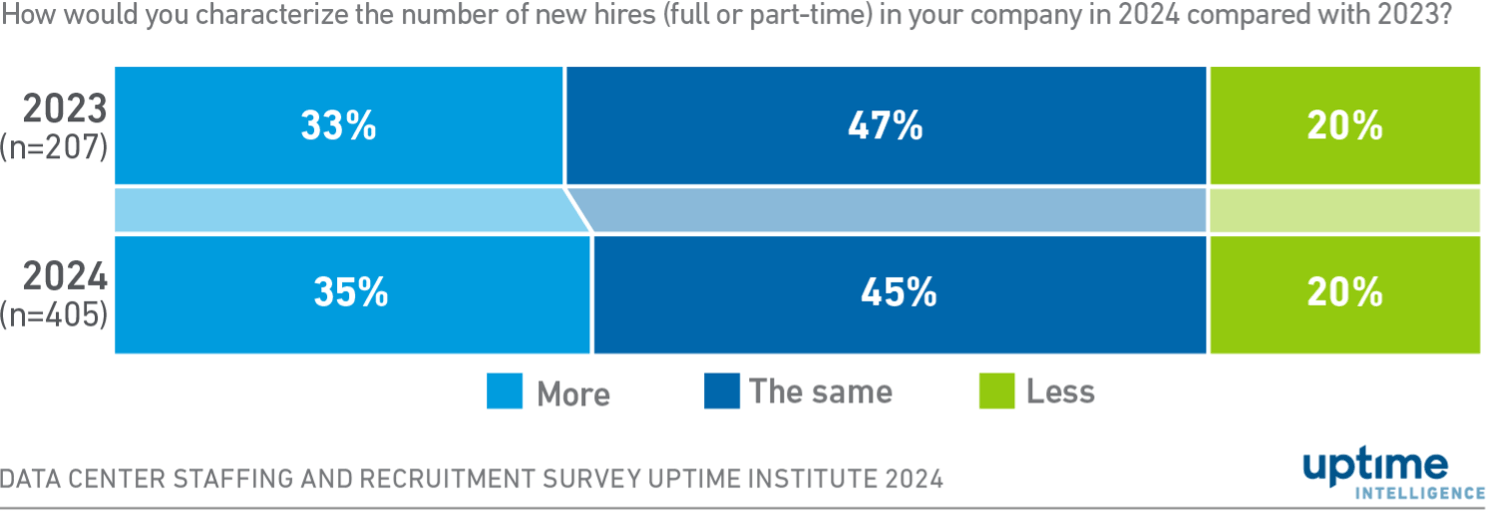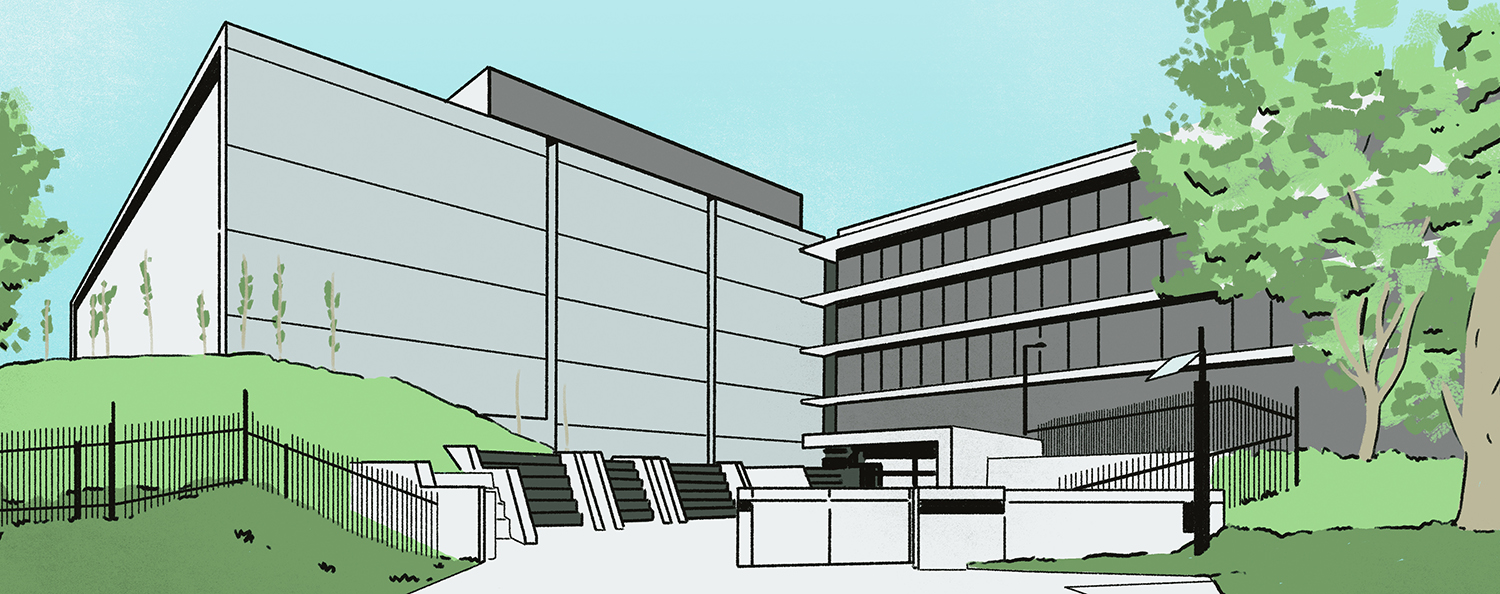Are data center workforce initiatives effective?
Over the past year, data center operators have reduced formal mentorship programs and workforce initiatives, but this seems to have had little impact on the number of successfully recruited new hires, according to findings from the Uptime Institute Data Center Staffing and Recruitment Survey 2024.
While such programs are generally regarded as effective in attracting and retaining employees, these results call into question whether the data center industry’s current mentorship and workforce initiatives are worthwhile.
Program cuts and industry growth
In the current period of strong data center growth, most owners and operators (86%) say they are planning to build new facilities, expand existing ones, or both. In addition, the majority of enterprise operators (67%) and owners say their capacity grew in 2024, further increasing demand for new staff.
Despite this need for more staff, findings from the Uptime Institute Data Center Staffing and Recruitment Survey 2024 show that the percentage of operators without initiatives to hire new entrants to the job market (e.g., recent college or training program graduates) increased by 11 percentage points from the previous year (see Figure 1). In the same survey, the percentage of organizations without formal mentorship programs grew by seven percentage points, from 36% to 43% in 2024.
Figure 1 Workforce initiatives to hire new entrants lost momentum in 2024

Despite cuts to workforce programs, data center operators did not report significant shifts in staffing levels. In 2023, most operators (67%) said they had the same number or fewer new hires than the previous year (see Figure 2). In 2024, these proportions remained unchanged, with only 35% reporting more new hires. An effective program should lead to increased hires and fewer recruitment challenges. However, in the absence of these programs, only an incremental movement was noted. Their presence did not appear to be a variable in whether new hirings rose or fell.
Figure 2 The proportion of new hires has remained largely stagnant

What the research says
Cuts to recruitment programs run counter to the goal of attracting and retaining talent. Academic research consistently shows that mentorships and workforce initiatives reduce staff turnover and promote hiring. For example, researchers at the National Association of Colleges and Employers found that employees with access to mentorships were significantly more likely to stay at the company after one year. Similarly, research by Harvard Business School found that investing in mentorships reduces the costs associated with high staff turnover.
It is likely that some data center workforce programs fail due to improper implementation. However, research-backed best practices can help operators design effective mentorship programs. For example, researchers at Cornell University found that the success of a program depends largely on mentor seniority, shared personality traits between mentor and protégé, and the involvement of a direct supervisor. Data center owners and operators can benefit from reevaluating their workforce programs to optimize their effectiveness. An analysis of the mechanisms behind successful mentorships will be discussed in a future Uptime Intelligence report.



 2020
2020


 2019, Getty
2019, Getty


